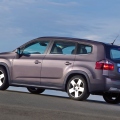You’ve probably heard that a car battery lasts between two and five years. But what about motorcycle batteries? Their lifespans can vary based on your riding conditions and habits. Keeping an eye on your battery’s health is essential, no matter if you’re on a bike or in an auto. This quick guide offers useful information to help you take the best possible care of your battery.
Factors That Determine Battery Life
Most automotive and motorcycle batteries use a standard construction: a power cell with positive and negative terminals. These batteries store chemical energy and transform it into electricity via chemical reactions. This powers the spark plugs that ignite and trigger air-fuel combustion for the engine to run.
Every time you start your auto or motorcycle, your battery generates those essential chemical reactions. You can see how a battery performs less effectively over time. Operating your vehicle usually allows its engine to recharge the battery gradually. But certain factors can shorten battery life:
- Frequent short trips
- Letting vehicles sit dormant for long periods
- Extreme hot or cold temperatures
- Faulty alternator or wiring
- Dirt and grease buildup on terminals
- Corrosion
How To Ensure Battery Life Longevity
Some factors impacting battery life are out of your control. But you can take better care of your car or motorcycle battery with regular maintenance and good operation habits. Multiple short trips can drain your battery, not giving it enough time to recharge. Consider combining them into longer jaunts – or if you can’t avoid short trips, consider investing in a battery charger.
Keeping your battery clean is also essential to preserving its lifespan. Clean terminals allow current to flow freely, but dirt and grease can drain precious battery life. Corrosion also diminishes current flow and can sap power quicker than usual. Temperature extreme can also wreak havoc. Hot weather may evaporate battery liquid or cause increased chemical reactions. Your power cell can also lose strength in frigid weather because it takes more current to turn your engine over.
Proper maintenance doesn’t just include caring for your battery. Bad wiring or a failing alternator can cause serious problems: excessive power drain, faulty charging, or even current flowing in the wrong direction. It’s wise to keep tabs on your alternator and electrical system to avoid surprises. You should also sure you switch off all electrical systems before powering your vehicle off. Also, steer clear of running too many electrical accessories – these can eventually drain your power.
What To Do If Your Battery Dies
You may wonder how to tell if your car battery is dead. Fortunately, you may get a little bit of warning before it completely dies. Common symptoms include slower starting or a “Check Engine” light on your dash. You could also get power to headlights and accessories, but your vehicle doesn’t start. And if your battery swells in sizes or gives off an odd “rotten egg” smell, you need to replace it. It’s also wise to swap it out at around the four-year mark to avoid ending up dead in the water. Your trusted local auto parts retailer can test your battery and help you get a high-quality replacement.







Recent Comments